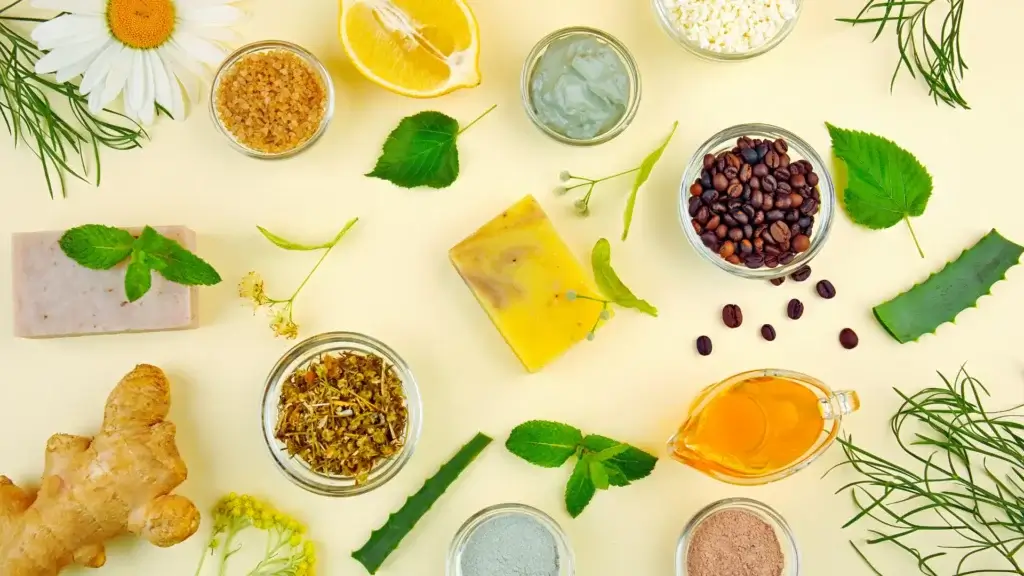Introduction
Over the years, Korean skincare has become popular gaining attention internationally for its detailed regimen and breakthrough products. Its multi-step regimens will heal your skin and turn it into its best healthy, glowing version all while being bespoke to cater diverse needs of different skin types. Korean skincare routine can be super helpful with oily skin. But with a tweaked routine to address the overproduction of oils and breakouts, you can get the type of skin that is clearer, more normal/balanced.
Understanding Oily Skin
Characteristics of Oily Skin:
Oily skin is marked by a shiny appearance, particularly in the T-zone (forehead, nose, and chin). This skin type often experiences enlarged pores and is prone to acne and blackheads. The excess oil can lead to a greasy feel and make it challenging to maintain a fresh look throughout the day.
Common Issues Faced
Individuals with oily skin frequently struggle with:
- Breakouts: Excessive oil production can block pores, resulting in acne.
- Blackheads: Oil and dead skin cells can form blackheads, particularly on the nose and chin.
- Shine A persistent greasy appearance, especially in the T-zone.
- Makeup Longevity: Makeup may slide off or break down quickly, necessitating frequent touch-ups.
Causes of Oily Skin
Several factors contribute to oily skin, including:
- Genetics: A hereditary tendency for overactive sebaceous glands.
- Hormonal Changes: Variations during puberty, menstruation, or pregnancy can elevate oil production.
- Diet: Consuming a diet high in greasy foods can exacerbate oiliness.
- Stress: Elevated stress levels can increase hormone production, which in turn stimulates oil production.
Step-by-Step Korean Skincare Routine
The Korean skincare routine is renowned for its thoroughness, often consisting of up to 10 steps. Here’s how to adapt each step to suit oily skin:
The 10-Step Korean Skincare Routine Explained
Oil Cleansing
- Purpose: Oil cleansing effectively removes excess sebum, sunscreen, and makeup without stripping the skin of its natural oils. It’s a gentle start to a Korean skincare routine, preparing your skin for the next steps.
- Best Oil Cleansers for Oily Skin: Look for lightweight, non-comedogenic oil cleansers such as those containing jojoba oil or grapeseed oil. These oils help dissolve impurities without clogging pores.
Water-Based Cleansing

- Importance of Double Cleansing: Double cleansing removes all remnants of impurities and oil, preventing clogged pores and breakouts.
- Recommended Water-Based Cleansers: Choose gentle, foaming cleansers that effectively remove any remaining residue from the oil cleanser. Formulas with tea tree oil or salicylic acid are excellent for controlling oil.
- Importance of Double Cleansing: Double cleansing removes all remnants of impurities and oil, preventing clogged pores and breakouts.
Exfoliation
- Benefits of Exfoliation for Oily Skin: Exfoliation helps eliminate dead skin cells and unclogs pores, reducing the likelihood of acne.
- Best Exfoliants for Oily Skin: Opt for chemical exfoliants such as BHAs (beta hydroxy acids) or AHAs (alpha hydroxy acids), which penetrate deeply into the pores to remove excess oil and debris.
Toner
- Role of Toners in Skincare: Toners help restore the skin’s pH balance and prepare it to absorb subsequent products.
- Best Toners for Oily Skin: Look for toners with ingredients like witch hazel, niacinamide, or green tea, which help control oil production and soothe the skin.
Essence
- What is an Essence? An essence is a lightweight, hydrating product that enhances the effectiveness of other products in your routine by delivering concentrated nutrients.
- Top Essences for Oily Skin: Essences with hyaluronic acid or snail mucin provide hydration without adding heaviness, making them ideal for oily skin.
Serum
- Benefits of Using Serums: Serums are concentrated treatments that address specific skin concerns such as acne, pigmentation, or signs of aging.
- Recommended Serums for Oily Skin: Choose serums with ingredients like niacinamide, salicylic acid, or vitamin C to regulate oil production and treat acne while brightening the skin.
Sheet Mask

- How Sheet Masks Benefit Oily Skin: Sheet masks offer a quick boost of hydration and nutrients, helping to balance and calm oily skin.
- Best Sheet Masks for Oily Skin: Opt for masks containing clay, tea tree oil, or charcoal, which help absorb excess oil and cleanse impurities.
- How Sheet Masks Benefit Oily Skin: Sheet masks offer a quick boost of hydration and nutrients, helping to balance and calm oily skin.
Eye Cream
- Importance of Eye Cream: The delicate skin around the eyes requires special care to prevent fine lines and puffiness.
- Best Eye Creams for Oily Skin: Lightweight, gel-based eye creams are ideal as they hydrate without leaving a greasy residue.
Moisturizer
- Finding the Right Moisturizer: Even oily skin needs proper hydration to stay healthy and balanced.
- Top Moisturizers for Oily Skin: Gel-based or oil-free moisturizers are best for oily skin, providing hydration without clogging pores. Ingredients like hyaluronic acid or aloe Vera are particularly beneficial. Moisturizing your skin is the key ingredient in the Korean skincare routine.
Sunscreen
- Why Sunscreen is Essential: Sunscreen protects your skin from harmful UV rays, preventing premature aging and hyperpigmentation. When following a Korean skincare routine, or any skincare regimen, it’s important to avoid direct exposure to sunlight. This helps protect your skin, especially after applying products like serums or exfoliants that can make your skin more sensitive to UV rays.
- Best Sunscreens for Oily Skin: Opt for lightweight, non-comedogenic sunscreens with gel or water-based formulas to avoid a greasy finish.
- Why Sunscreen is Essential: Sunscreen protects your skin from harmful UV rays, preventing premature aging and hyperpigmentation. When following a Korean skincare routine, or any skincare regimen, it’s important to avoid direct exposure to sunlight. This helps protect your skin, especially after applying products like serums or exfoliants that can make your skin more sensitive to UV rays.
Additional Tips for Managing Oily Skin

- Lifestyle and Dietary Tips: Maintain a balanced diet, stay hydrated, and manage stress to help control oily skin. Foods rich in omega-3 fatty acids, such as fish and flaxseeds, can help regulate oil production.
- Importance of Consistency: Consistency is key to achieving and maintaining clear, balanced skin. Stick to your routine daily and adjust products as needed based on how your skin responds.
Conclusion
A Korean skincare routine tailored for oily skin can be transformative. By following these steps and opting for lightweight, oil-controlling products, you can achieve a balanced and clear complexion. Remember, the key to success is consistency and selecting products that work best for your specific skin type.
We hope you found our article on the “Korean Skincare Routine for Oily Skin” informative and helpful. If you’ve tried this routine, we’d love to hear about your experiences and any positive effects you’ve noticed. For more insights, don’t miss our latest article on the Chandipura Virus outbreak in India. Thank you for reading, and see you in our next article!
Frequently Asked Questions:
Can oily skin benefit from oil cleansing?
Ans: Oil cleansing is beneficial for oily skin as it effectively dissolves excess sebum and impurities without stripping the skin of its natural moisture.
How often should I exfoliate if I have oily skin?
Ans: Exfoliating 2-3 times a week is generally recommended for oily skin. This helps remove dead skin cells and prevents clogged pores, but be cautious not to over-exfoliate, which can irritate the skin.
Are sheet masks necessary for oily skin?
Ans: Sheet masks are not strictly necessary but can be a beneficial addition. They provide extra hydration and targeted treatment, which can help balance and soothe oily skin.
What ingredients should I avoid if I have oily skin?
Ans: Avoid ingredients that can exacerbate oiliness, such as heavy oils and products with high alcohol content. Comedogenic ingredients that clog pores should also be avoided.
Can I skip any steps in the Korean skincare routine?
Ans: You can tailor the routine to your needs. For instance, you might skip the essence or sheet mask if they feel too heavy for your skin. The goal is to find a regimen that works best for your skin type and lifestyle.
Disclaimer:
This blog does not constitute medical, nursing, or professional healthcare advice, diagnosis, or treatment. If you or someone you know has a medical concern, please consult with a healthcare provider or seek professional medical treatment immediately. Never disregard professional medical advice or delay in seeking it because of something you have read on this blog, website, or in any linked materials. We cannot diagnose conditions, provide second opinions, or make specific treatment recommendations through this blog or website.






